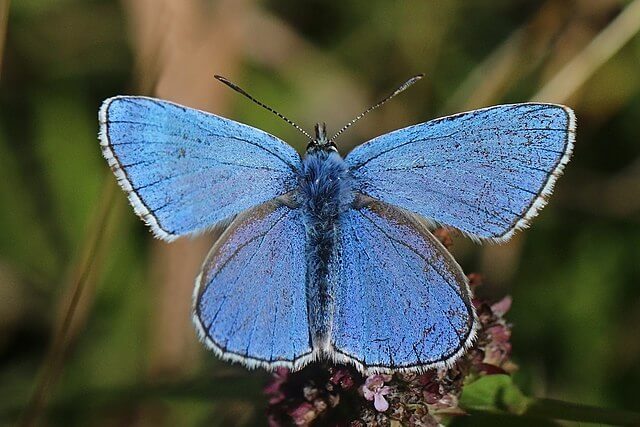
Natural England, the government’s advisory body, has allocated £14.5 million in funding for nature conservation projects aimed at reviving endangered species in England.
These projects will encompass a wide range of species, from water voles in London to crayfish in North Yorkshire, and will focus on activities such as breeding programs and habitat restoration.
Approximately 15% of England’s species are currently at risk of extinction, underlining the urgency of these initiatives.
Tony Juniper, Chair of Natural England, emphasised that previous recovery programs have demonstrated their effectiveness in protecting and reviving endangered species.
“Nature is in drastic decline all around us. It’s a dire situation, but can still be turned around. We know this because we’ve seen the population of the once-endangered bittern rise dramatically, the recovery of the fen raft spider and water voles successfully reintroduced to areas from where they had previously been lost,” he said.
One of the projects set to receive funding is the Wiltshire Chalk Partnership, a collaboration involving conservation organisations like the National Trust, RSPB, Wiltshire Wildlife Trust, and the Pewsey Downs Farmer Group. This partnership is dedicated to restoring 2,000 hectares (4,942 acres) of flower-rich grasslands, a vital habitat for various insects, including butterflies.
Among the species benefiting from this initiative are the wart-biter bush cricket, marsh fritillary, large blue, Adonis blue, and Duke of Burgundy butterflies. These are habitat specialist species, meaning they require specific environments to thrive. Over the past five decades, their populations have declined by 27% due to urbanisation and expansion of farmland.
Dr Dan Hoare, director of conservation at the Butterfly Conservation charity, told the BBC: “These schemes announced today are a huge boost to directly improve conditions for some of our iconic wildlife across England, helping their populations recover and building the resilience they need to survive and thrive in our rapidly changing environment.”
Butterflies are essential indicators of overall environmental health, as they serve as a food source for birds and bats and play a crucial role in pollinating plants.
The United Kingdom is known for being one of the most nature-depleted countries globally. While the government introduced its 25-year Environment Plan in 2018 to address this issue, a recent report by the independent Office for Environmental Protection (OEP) revealed that many of the government’s 23 environmental targets are at risk of not being achieved.
Investing in the UK’s natural environment is not only essential for the preservation of its own biodiversity but also holds significance for global species conservation. The White-clawed crayfish, another beneficiary of the program, is considered endangered worldwide and has seen a substantial decline of up to 70% in the UK. The introduction of the aggressive North American signal crayfish, a non-native species, has introduced diseases to which the native crayfish lacks natural resistance. Additionally, freshwater rivers and streams, their natural habitat, have become increasingly polluted in recent years.
The Claws for Thought Project, supported by the grant, will establish a new rearing facility to assist crayfish during their vulnerable early stages. The project’s existing breeding program has managed to achieve a 60% survival rate to breeding age, a significant improvement compared to the wild.
Other species set to benefit from this two-year program include the large marsh grasshopper, lapwings, and the grey long-eared bat. These conservation efforts represent a significant step in safeguarding England’s biodiversity and natural heritage for future generations.
——————————————————————————
At Natural World Fund, we are passionate about stopping the decline in our wildlife.
The decline in our wildlife is shocking and frightening. Without much more support, many of the animals we know and love will continue in their decline towards extinction.
When you help to restore a patch of degraded land through rewilding to forests, meadows, or wetlands, you have a massive impact on the biodiversity at a local level. You give animals a home and food that they otherwise would not have had, and it has a positive snowball effect on the food chain.
We are convinced that this is much better for the UK than growing lots of fast-growing coniferous trees, solely to remove carbon, that don’t actually help our animals to thrive.
This is why we stand for restoring nature in the UK through responsible rewilding. For us, it is the right thing to do. Let’s do what’s right for nature!
Donate today at https://naturalworldfund.com/ and join in the solution!

